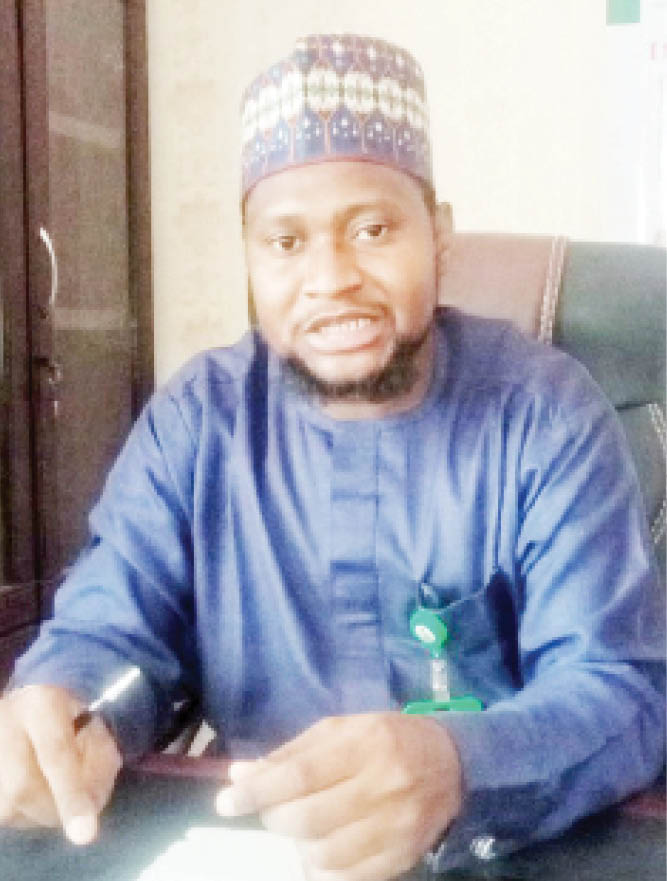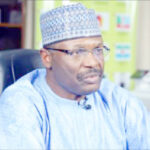Dr. Sabitu Y. Shanono is the Director-General of the Kano State Agency for Control of AIDS (KSACA) and also the Deputy Coordinator of Kano State Task Force of COVID-19 Technical Response Team. In this interview, he speaks on the widening gap in access to healthcare as well as the effect of ineffective health databases, among others. Excerpts:
Since the onset of the COVID-19 pandemic in the country, several other aspects of healthcare seem to have been relegated or even neglected. How can you quantify the impact of this neglect?
- 100 northerners leave Imo as 8 killed, 6 injured in fresh attack
FG plans new salary package for judges
COVID-19 is actually, an unprecedented epidemic that has so many effects. Socially we have seen the effect looking at how we are locked down in our houses and how our many economic activities are affected in terms of businesses and more.
In terms of the healthcare system and healthcare delivery, COVID-19 brought so many changes. There were times when going to clinics were as fearful as you can think of and then there were times when clinics were boycotted by patients because of the fear of COVID-19.
But we can say that gradually we picked up and we were able to restore much of the healthcare services that have been provided especially for Kano State. But, by and large, COVID-19 has actually affected all aspects of our endeavours.
This year’s World Health Day is themed ‘Building a fairer, healthier world for everyone’, and WHO said the COVID-19 pandemic has really undercut some of the recent gains made in health delivery. What can be done at the state level to eliminate these health inequities?
In states like Kano, there were so many changes that occurred. At the peak of COVID-19, our hospital attendance reduced by over 50 percent.
Most of our clinics were closed not because there were directives to close them, but because one; there were no patients coming because they were afraid they might contract this unknown disease at the beginning.
And then there is this fear of the unknown even from the healthcare workers, which led to some of our facilities running at a very minimal and some at even zero level.
But in order to curtail that, the state government ordered that all facilities must function optimally and so much was done to alleviate that fear especially in the community by enlightening the society on the preventive measures.
That has actually helped us so much in restoring and even improving our healthcare delivery, post COVID-19.
Sometimes you know when you have a very conducive environment that actually attracts people to come around. That’s another thing that was done in Kano specifically to provide a healthier and fairer world.
What can other stakeholders in the health sector do to help bridge this gap that is widening?
I think for other stakeholders, the first thing to do is to direct our resources to more effective programs and services towards effective and efficient healthcare delivery. I think that is a call for most of our partners. Secondly, in terms of the state government, I think ensuring that we fight this COVID-19 to the last will actually give you that confidence that yes the health system is quite robust and we can continue to access service without fear of the unknown.
It seems attention is focused more on the urban areas when the government is making plans towards healthcare delivery while rural settlements with their primary healthcare centres are left behind which also shows the widening gap between the social structure in getting the desired healthcare. How can this be addressed?
We call it the reverse triangle, where we have more sick people, more population that need the services in the rural areas but you tend to have more of these services in the urban areas. Most of the third world is suffering from that. Specifically in Kano, that is one of the concepts we have been trying to change for the better. For example, before now, out of the 40 general hospitals we have in Kano, more than half of them are within the metropolis.
But what this government did was to ensure that in each of the emirates; it is currently building a specialist hospital with all the services that we have in the city. So this has actually turned the tide, instead of people coming to the cities to access healthcare I think that has been a step to reverse that, which I’m sure has gone to an appreciable level of completion. Not just that, the policy of ensuring every ward has a standard healthcare facility, which has been started in Kano State will actually help in reversing this inequality. For example, now we have 474 facilities in Kano that have been identified for an upgrade.
Recently, it was discovered that thousands of tuberculosis (TB) patients disappeared from the government’s follow-up radar. What do you think contributed to this and how can the government address it?
Since the beginning of TB control programs and even HIV/AIDS control programs, we do experience this problem of what we call loss to follow up. Some people actually will start treatment and along the way, you won’t see them again.
There are so many factors. For some, we might have lost them (to death), some might be from the fact that they transferred from one place to another, and they are no longer within the vicinity of that clinic that they are being treated and they go elsewhere and register as clients. But currently COVID-19 has been identified as one of the reasons; with COVID-19 there were so many restrictions in terms of service provision and then the lockdown and that actually increased the number of loss to follow up that we are having. Part of the solution we proffer in Kano is to look at these facilities and to look at the patients and see how we can link them to care closer to their place of residence. Secondly, we look at ways to provide what we call volunteer drug providers. We actually link them to communities and we have officers that go to communities and identify these patients and give them drugs. We started with TB and HIV/AIDS and it has actually improved our indices in terms of the loss to follow up.
From this, it is obvious there is still a huge challenge with an effective health database. What is the way out of the situation?
For programs especially TB, HIV/AIDS, hepatitis and others that you can get some free services, there is always that problem of some moving from one place to the other.
The best way to control that is for us to use what we call biomarkers (biometrics) as part of our monitoring and evaluation. For HIV/AIDS, it has been started. Now, most of our clients have been registered with their fingerprints and all their information so that even if you move from one centre to another it will actually be able to pick that. And I’m very sure that as we have started, others will follow. So it is the advice that we have given and that has been put to use.
There are reports indicating a widening funding gap for HIV/AIDS with the coming of COVID-19. How do you think the government can balance this?
Our clients are affected in terms of access to services and economically. You see most of the clients are affected by the lockdown and then the change in the economic status of the country as a whole. So for us, I will say that some of the things that we are trying to do to reduce that inequality are how we can make drugs more available at the community level which I explained earlier.
Now we have a system that provides drugs at the community level, you don’t have to come to the facility in the city to do that because of the change in the economic status of the country which means many may not even have enough money to even transport themselves to these facilities. In each community, we have volunteers that will link you up with the clinic. You don’t have to go, and there are certain volunteers that can actually get all your information and then take it to the clinic and then get you your drugs. So, there is no fear of stigmatisation because they are actually agreed groups among those that are positive. We can have a group of ten of us and among us, we can send one to go to the clinic and collect drugs for all of us. So that has also helped. Then specifically for Kano, we have also tried to see how we can improve their economic status in terms of empowerment, job creation and other things. We have done that in the last year.
We were able to train more than 250 persons at a time for different trades and now we are planning to train more. So this is one of the ways we are trying to see how we can reduce that economic inequality in order to help them in accessing their drugs.

 Join Daily Trust WhatsApp Community For Quick Access To News and Happenings Around You.
Join Daily Trust WhatsApp Community For Quick Access To News and Happenings Around You.


